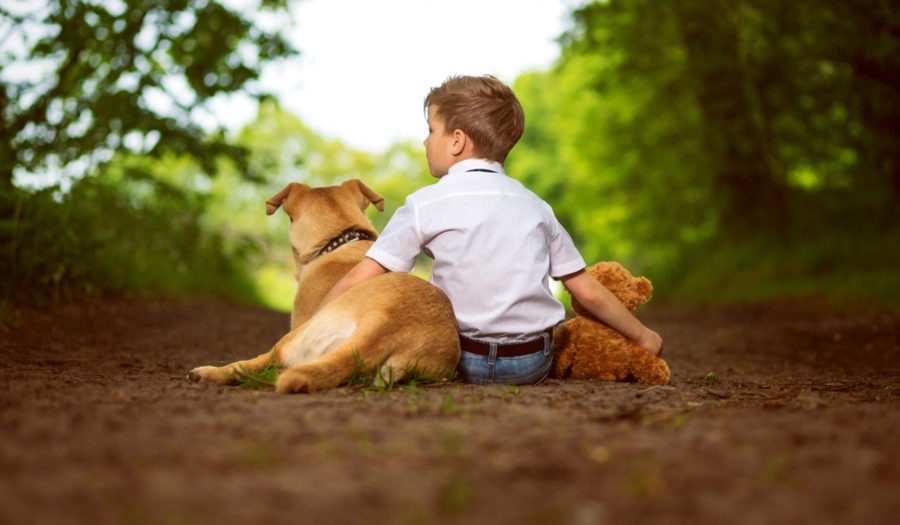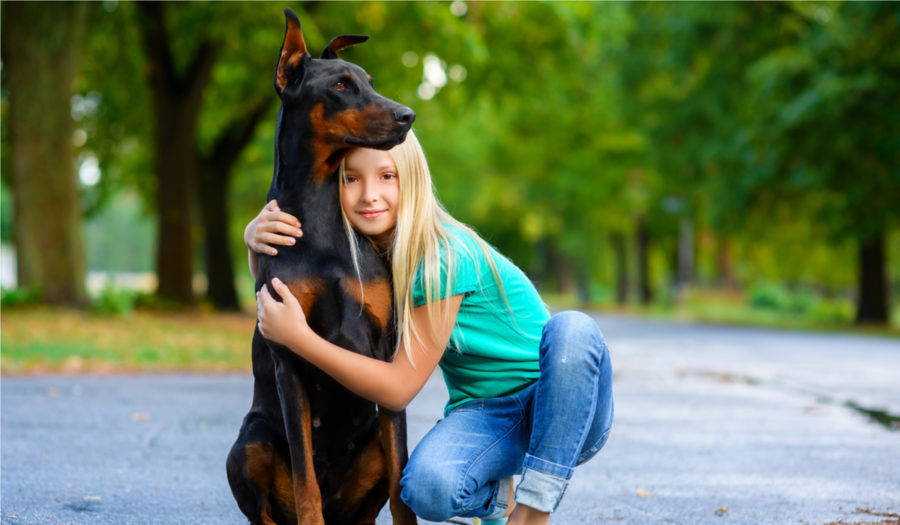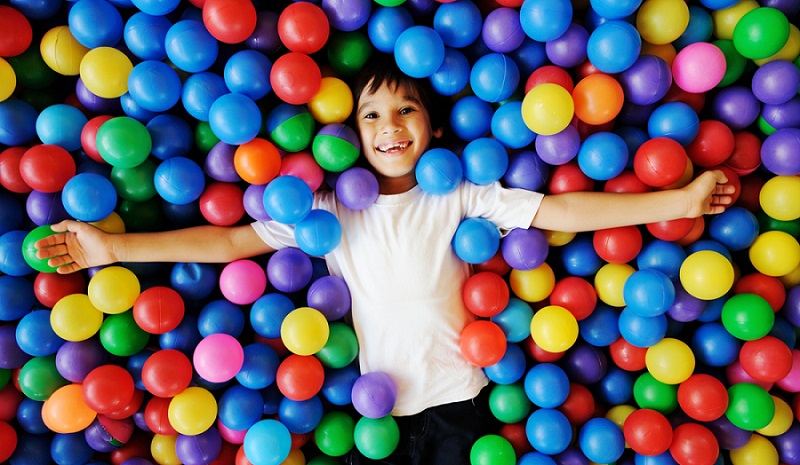Can a service dog help your anxious child?
Children with anxiety disorder often feel that their lives are spiraling out of control. Things that other kids do cause them anxiety or panic.
Things like going to school, a mall, a movie theater, or going to bed at night.
Lights, sounds, people, darkness. Anything. Everything. Nothing.
Sometimes they are afraid, and they don’t even know why.
Living with chronic anxiety is tough, and unlike many other childhood disorders, anxiety is a hidden disability.
It’s lonely. The only people who really get it are those who experience it.
You might wonder if a service dog could be the faithful forever friend who calms your anxious child at home and in the community.
Would a service dog be your child’s “live teddy bear?” This is how a child describes her service dog, a Tucker.
Could a service dog interrupt your child’s panic attacks, help him remain grounded during stressful situations and help him remember self-calming techniques?
There’s a lot to consider.
Let’s start with the most important questions.
- Is your child or anyone in your family or extended family allergic to dogs?
You might not know this if your child hasn’t been exposed to many dogs.
- Does your child like being around dogs?
Experts say they have met parents who want a service dog while admitting their child is timid around dogs.
- Are you emotionally and financially able to care for a dog?
Consider food, vet bills, shots, pet medicines and emergency care. These add up quickly.
- Can you simultaneously manage a child with special needs and a service dog?
As the parent, you will be the dog’s primary handler. Can you manage your child’s needs, and the dog’s needs? This is important, especially out in the community, when your child might experience more episodes of anxiety.
There are service dogs, therapy dogs, emotional assistance dogs and simply companion dogs.
Can they help your anxious child? And if so, how can you find the right one?
To find out, I spoke with psychologist Melanie Jones, an animal assisted therapy expert, dog trainer and the owner of Lead the Way in Melbourne, Australia, and Kristin Hartness, the Executive Director of Canines for Kids, a nonprofit in Worcester, Massachusetts.
Lead The Way provides therapy and supportive care for those in need and trains professionals in the art and science of animal assisted interventions. Canines for Kids helps match children with the best service dog to meet their needs.
-
Is there any research-based evidence that dogs help with anxiety?
According to Melanie, there is more than anecdotal evidence that animals help children with emotional disorders, like anxiety, autism spectrum disorders, and other conditions.
“Children are innately drawn to animals, from infancy,” Melanie states. “Whether it’s hardwired into the brain, or an instinct, as researchers, we don’t know, but we do have evidence that animals help anxious children.”
She points to the work of Boris Levinson, one of the first researchers on the benefits of using dogs to help children with emotional and behavioral disorders and autism. He found that animals could be a catalyst in therapy and could help children better connect to reality.
This kind of grounding centers a child who might be struggling with extreme anxiety or panic. The animal distracts the child, brings him back into the moment, and out of the grip of anxiety.
“Dogs are useful to children in so many ways,” says Melanie. They provide a sense of calm. Dogs help kids regulate their emotions and behaviors; they become a best friend, a trusted confidant, and help children develop empathy, trust, communication skills and other prosocial behaviors.”
-
What exactly is a Service Dog?
A service dog has specific training to help an individual with a disability, whether that person is an adult or a child. Training is extensive, designed specifically for the person with the disability, and it can take 1-2 years.
Kristin Hartness, of Canines for Kids, says that under the Americans with Disabilities Act (ADA), the rules for Service Dogs or Psychiatric Service Dogs are the same for children and adults.
Service dogs are permitted in all public areas: like in restaurants, on airplanes, or at the mall. Service dogs often accompany the child to doctor’s or dental appointments, to school and extracurricular activities and even when travelling.
“Many people call me and say their child is anxious and needs a service dog to relax them and reduce their anxiety levels,” says Kristin.
“But that isn’t a service dog. That is a therapy or an emotional assistance dog, which, under ADA, is not permitted in all public areas with the child.
As of 2011, the ADA says that psychiatric service dogs do qualify as service animals but they must be trained to perform specific skills. Just providing comfort for anxiety isn’t a specific skill.”
Now let’s look at what is service dog is not:
~A therapy dog
By definition, therapy dogs are specially trained dogs, selected for their good temperaments, who give comfort and affection to individuals in schools, hospitals, hospices, nursing homes, and other settings.
Unlike service dogs who perform specific tasks for their owners, therapy dogs only need to one thing: enjoy being with people. By allowing people to pet, cuddle and love them they reduce stress and bring comfort to children and adults. They cannot go with their owners into all public areas, like a service dog can.
~An emotional assistance animal
An emotional assistance animal is any animal that provides emotional support to his owner. While it is most often a dog or a cat, any species that is therapeutic and comforting to its owner, qualifies. An emotional assistance animal is not a pet or a companion animal. It does not need to training to perform specific tasks like a service dog, or special licensing like a therapy dog.
Unlike service dogs, they are not permitted to be with their owners in the community. They have no rights to public access, like service dogs.
According to The U.S. Department of Housing and Urban Development, an emotional assistance animal assists a person with a disability and may live with its owner in a residence that does not allow pets. The emotional assistance animal must reduce the internal or external symptoms of the owner’s disability.
To qualify for an emotional assistance animal, a person needs written documentation from a physician or other mental health professional stating that the animal supports the owners existing disability.
~A companion animal
A companion animal is a pet. They have enormous benefits for an anxious child. They do not have any rights to access public spaces.
Knowing what kind of dog your anxious child needs is a decision best made with the assistance of your child’s physicians, therapists and agencies specialized in matching service dogs with those in need.
One of the first things they will consider are the tasks the dog can perform to assist your anxious child.
-
What tasks can a service dog perform to help an anxious child?
Melanie and Kristin agree that a service dog perform variety of tasks to help an anxious child.
“Anxiety is a component of so many disabilities, developmental disabilities like autism, or emotional and behavioral disorders like anxiety and depression,” says Kristin.
“It’s important for the parents to meet with a service dog matching agency like Canines for Kids (which works with children and families all over the United States) and let them know what behaviors the child needs help with. Then, with the trainers, we determine the tasks the dogs will do to help that specific child,” Kristin advises.
Melanie points out that there many physiological tasks that dogs can perform that reduce a child’s anxiety.
Physiological tasks include:
~ obstacle avoidance (helping a child with anxiety avoid objects or people who induce anxiety)
~ retrieval-based tasks (like bringing a cell phone to an individual having a panic attack)
~ pawing-based or nose-nudged tasks (like interrupting a child having anxiety-induced behaviors.)
According to Kristin, “Some larger breed dogs know how to apply Deep Pressure Touch Stimulation (DPTS) by leaning into a child and using their body weight to help a child’s emotional regulation. Some dogs will lay on a child, before school, to help them prepare for the day, or after school, to help a child reset to the transition of being back at home.”
If a child has consistent repetitive behaviors, like rocking, shaking, picking, etc., as their anxiety begins to escalate, the dog watches for this, and interrupts the behavior.
The child knows, “When my dog interrupts this behavior, I can do these things.” (The child learns to do deep breathing exercises, visualization, or another therapeutic technique to stop the anxiety episode the dog has interrupted.)
For a child with autism spectrum disorders who experiences anxiety around people, the dog acts as a buffer, getting between the child and other people, giving her the space she needs to be relaxed and comfortable in public or in social situations.
Kristin says communication with the service dog placement agency and the child’s support network is crucial.
“Sometimes parents tell me their child needs a dog to support them through their anxiety. They say they want their child to have a friend. I tell them, emotional support isn’t a service dog, that’s a therapy dog or emotional assistance animal.”
“As we talk, I often learn the child has another disability, like an autism spectrum disorder. Anxiety is a component of so many disabilities. By working together we can find the right dog to train for that child’s needs.”
Kristin continues, “The (dog) trainers are so creative in finding tasks the dog can be trained to perform to help the children. Even if the only diagnosis is anxiety, if there are tasks the dog can do to provide more than emotional support, we identify them and then find an agency that will train a dog to meet that child’s needs.
-
How can a child with anxiety qualify for a service dog?
Kristin says that to qualify for a service dog a family will have to answer three questions:
- Is the animal required due to the disability?
- What is the work or task that the animal has been trained to do to help specifically with the child’s disability? (This is an actual behavior that the dog has been trained to do with the specific purpose of helping a child in an anxiety situation.)
The child petting the dog and then relaxing is not a skill that the dog has been trained to perform. Even though research has proven that petting dogs reduces stress hormones, and lower blood pressure and heart rate in children and adults.
Then the next important consideration is:
- Who will be the dog’s handler, the child, a parent, or a third party (an aide at school?)
For a child to have the service dog at school, which is what most parents of anxious children want, the child has to be the dog’s primary handler. This means the child has to maintain control of the animal, and the animal must be harnessed or tethered to that individual.
Kristin points out, “The law is clear that children who qualify for a service dog are allowed to have the animal at school, but only when the handler is there. Facilities must allow the animal in, but are not responsible for them, unless they choose to be.”
She continues, “Schools cannot be forced to pay an aide or paraprofessional to be the dog’s handler throughout the school day. However, I have known of situations where the schools decided to take on that responsibility for the benefit of the child.”
Kristin’s agency, Canines for Disabled Kids, is seeing a huge increase in service dogs for children on the autism spectrum. “I would estimate that 25% of the families we provide service to have children with autism spectrum disorders, of which anxiety is often a huge component.”

-
How do you find the right service dog for your child?
According to Kristin, it is a three-step process.
- Work with an agency, like Canines for Kids that can help determine if your child qualifies for a service dog.
- Share your child’s needs so they can make recommendations on an appropriate dog to partner with your child.
- Utilize the national agencies that train service dogs to find a legally compliant service dog.
“So many people think that they can self-train train a dog to be their child’s service dog. The result is often an out-of-control animal that is not legally compliant. You need a trained service dog. A reputable training program is your best bet. They have the time to dedicate to training the dog and they take the risk of failures.
“While it is possible to hire private trainers and train a dog to be a service dog for your child,” Kristin says, “I don’t recommend it.”
“Even with the best professional training, there is a 50% failure rate. Not many dogs have the correct temperament and skills to be a service dog. Taking up to two years out of your life to train the dog, plus the emotional and financial risk if the dog doesn’t work out, that’s a big chance to take”
“Self-training is probably more expensive in the long run. You need to find good trainers and pay them out of your own pocket, and devote yourself completely to the dog for up to two years.
In addition, parenting a child with a disability takes up a lot of your time and can be emotionally draining. After meeting your child’s needs, do you have the time, energy and money to train a dog yourself?”
Service dogs can be wonderful partners, performing specific tasks to help reduce your child’s anxiety and have a better overall quality of life. It’s important to remember that once your child qualifies, finding an appropriate match can take up to two years.
Anyone who has a service dog will tell you that the bond is stronger than anything they’ve ever known, and it’s definitely worth the wait.
Our next post tells the inspirational story of Justin, a young man with autism and a cognitive disability who found his life’s purpose with the help of his service dog.

By signing up, you’ll also receive your free guide with 20 ways to comfort your child…mind, body and spirit.







 in Ohio
in Ohio
9 Comments
I would never know the differences between service dogs and therapy dogs if it wasn’t for this!! There’s so much to consider when finding or getting a service dog. They are so loving, and helpful of course!
Thanks for this as a kid i went though and i was going to do a speech on service animals/dogs because of how many there are in the world
I am so glad you found this article helpful. Thank you for visiting CAC.
My child has almost daily panic attacks, preventing her from doing things other kids can do normally. She has mentioned the idea of a service dog, but my husband and I are skeptical.
Can having a service dog take away her independence or self-esteem? I worry that letting her have a service dog will make it so she won’t be able to go anywhere without one. I don’t want her to lose the little self-confidence she has.
Hello. I’m sorry your child is struggling with daily panic attacks. A service dog would be a wonderful therapeutic companion, and one who, as part of a mental health treatment plan, could help your child when he/she is having a panic attack and help him/her get back to normal childhood activities. I am not an expert on service dogs, but I write for many service dog organizations and have contacts who could give you more information, at no cost to you. One friend, is the director of a non-profit that helps parents find service dog providers, and she knows quite a bit about service dogs for children with anxiety and panic disorders. Please feel free to contact me at [email protected] and I can message you privately with her contact information. I hope you contact me so I can connect you with my friend. Wishes of peace and comfort to your child. Peace always, Jan
This has been sooo helpful. My daughter is 5 and has the worst anxiety and panic attacks. I am needing to get in contact with someone about a service dog possible for her. Who would i need to contact?
Hi Jessi,
I’m so sorry your little one is having anxiety and panic attacks. Please email me at [email protected] and I can help you further. Peace, Jan
My son is 12. He is exceptionally bright but has always had a unique way about him. He has generalized anxiety disorder, Sensory Processing Disorder, AdHd as well as depression. He is a super allegic child as well and I wasn’t sure if there were any options for him .He takes medication during the school year during the day for studies only as well as allergy medication. He is really struggling and I am trying to find an alternative to help this beautiful boy. Any suggestions or directions you can point us to as far as a service animal?
Desperate Mom
Lana Sebastian
Hi Lana,
I’m so sorry your son is struggling. I have sent you an email directly to answer your questions and refer you to an agency that may be able to help you. Peace, Jan